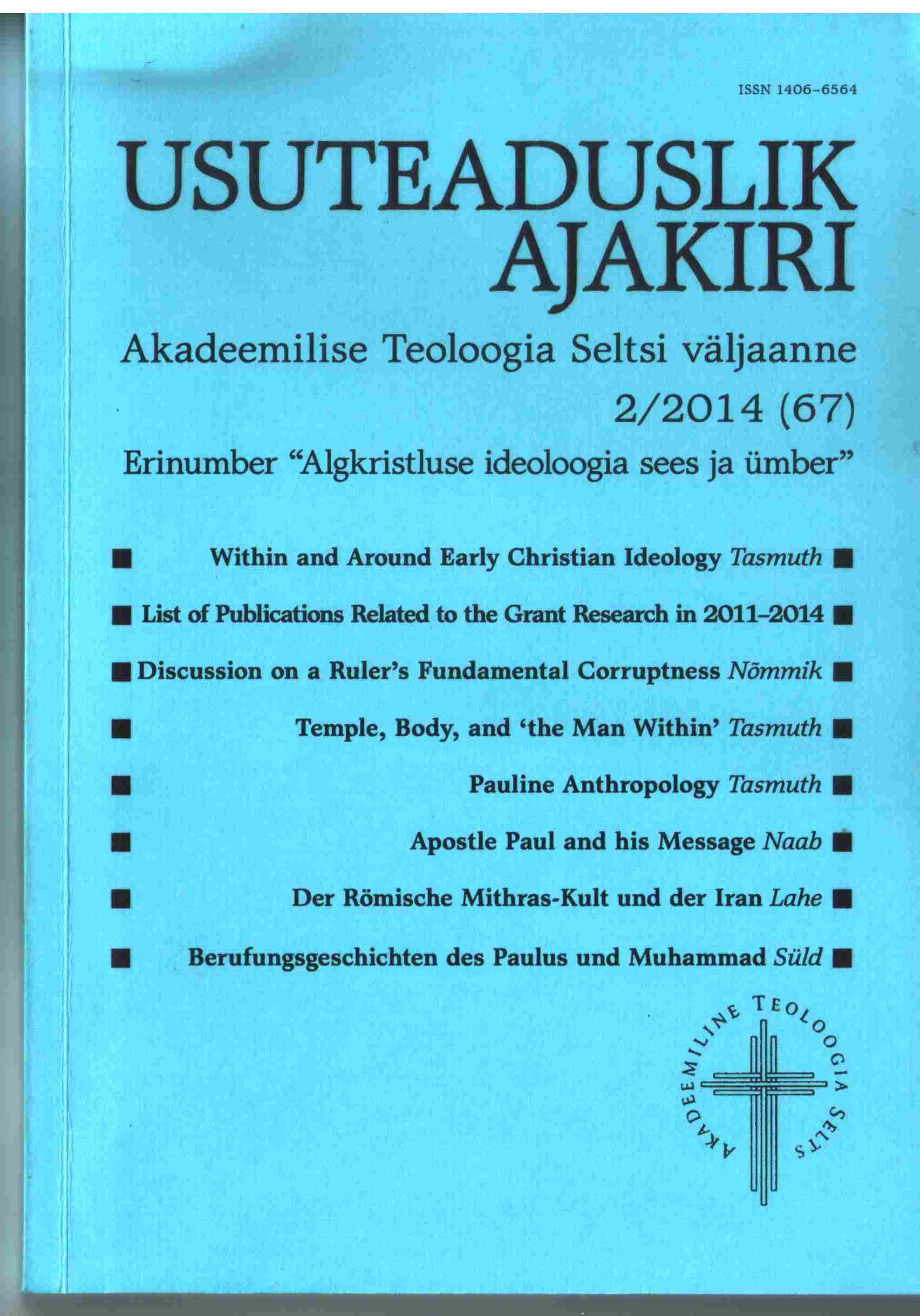Pauline Anthropology: On the Inner Human Being and the Human “I”
Pauline Anthropology: On the Inner Human Being and the Human “I”
Author(s): Randar TasmuthSubject(s): Theology and Religion, Biblical studies, Sociology of Religion
Published by: Akadeemiline Teoloogia Selts
Keywords: Biblical Studies;New Testament;
Summary/Abstract: Paul introduced his novel expression ὁ ἔξω ἄνθρωpος as a metaphor for the physical body, identified our “outer person” with a tent-like house and created the combination of the two phrases ὁ ἔσω ἄνθρωpος and ὁ ἔξω ἄνθρωpος. “The man within” is inherently connected with the mind, the process of moral decision-making, and it represents this rational aspect of the “I” which is in harmony with the law of God but does not possess the power to overcome sin. The human “I” is split, simultaneously belonging to the old epoch of sin and death and to the new epoch of life and spirit, which places “I” in the midst of an eschatological tension. There is a remarkable similarity of patterns between 2Cor 4:1–5:16(17) and Rom 7:7–25 and 12:1–2.
Journal: Usuteaduslik Ajakiri
- Issue Year: 2014
- Issue No: 2 (67)
- Page Range: 45-65
- Page Count: 21
- Language: English

